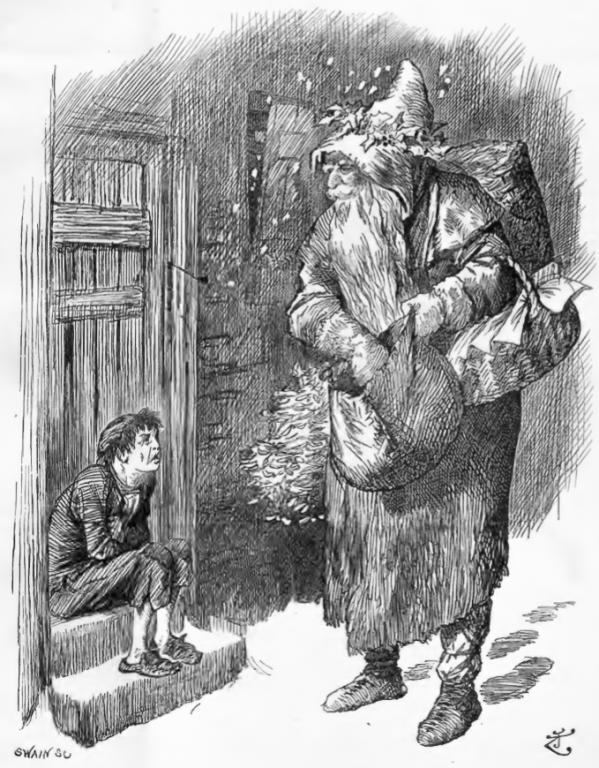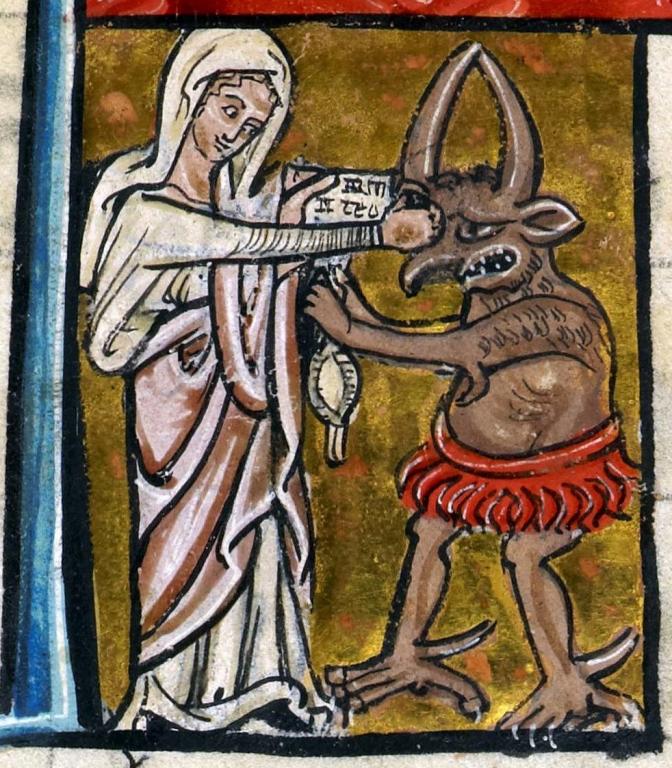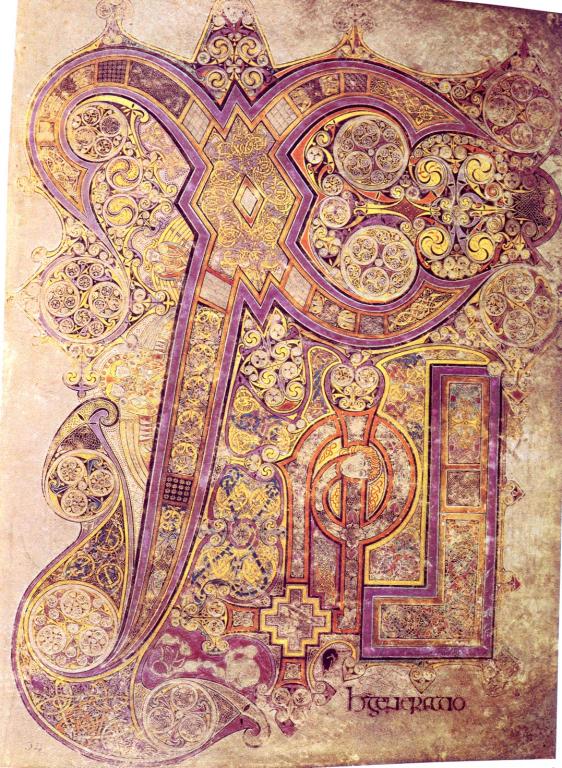Ordinary Time
10 August 2019
The Edge of Elfland
Concord, New Hampshire
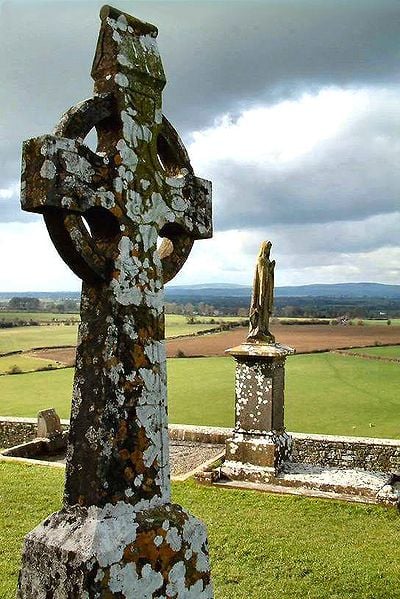
The photograph was taken by Chmouel. See [1]. It was originally uploaded to the English Wikipedia, with the upload history:
02:54, 17 Sep 2004 . . User:Redquark (90603 bytes) (photoshopped to add top part of cross)
18:33, 23 Mar 2004 . . User:Chmouel (115833 bytes) (High Cross in Ireland)
(CC BY-SA 3.0)
Dearest Readers,
Yesterday, searching for a way to get my kids out of the house for a bit, I decided to take them on a walk to the local cemetery. It’s an old cemetery, by American standards. The oldest graves date back to the mid-nineteenth century. After our walk, I found out that a portion of the cemetery was purchased by the local Catholic parish, which happens to be my parish.
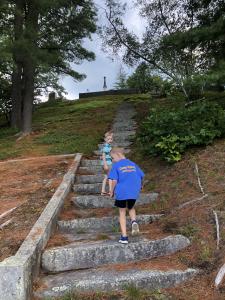 Since we watch a decent amount of fantastical shows and read such stories, one of my boys was concerned we might find zombies, ghosts, or skeletons. But we didn’t. Instead we walked around, after ascending an eerie and beautiful set of stairs leading to the top of hill filled with graves and tombstones. Or, as my boys called them, burial gardens.
Since we watch a decent amount of fantastical shows and read such stories, one of my boys was concerned we might find zombies, ghosts, or skeletons. But we didn’t. Instead we walked around, after ascending an eerie and beautiful set of stairs leading to the top of hill filled with graves and tombstones. Or, as my boys called them, burial gardens.
I was enchanted by this word. It paints a picture of human bodies, lovingly planted, awaiting the day of their resurrection. This got me thinking about death and how we handle it as a culture. On the one hand, I’m sympathetic with those who say we shouldn’t mourn death, but celebrate the end of a race well run. After all, Paul does say, “to live is Christ, to die is gain.” And yet, death is sad event. It isn’t how things are supposed to be and we respond to that correctly when we respond with tears. Perhaps there is even a way that our tears provide some part of the rain of the resurrection. I don’t know, but I do know that burial garden is a beautiful way of thinking of and talking about the places not of our final, but of our temporary repose.
During our walk around all these departed souls, my boys began to ask me questions about what happens when we die. They’re five now, and these questions are beginning to come fast and furious, especially about the deeper realities. I tried to explain to them that when we die our souls go on and our bodies go in the ground. I didn’t endeavor to explain Hell to them, but I tried to make some sense of Purgatory and Heaven. Heaven is bright and beautiful and good, I told them, a place where we get to live forever with Jesus. Both of my boys seemed quite pleased with this prospect. Although, one of them wanted to be a big man before that happened.
This conversation still didn’t allay fears that the dead surrounding us might spring from their graves, but still, I’m glad we went. It provided moments of beauty for me and understanding for them. The experience reminded me of Wordsworth’s “We Are Seven.”
The narrator of the poem meets a little girl playing. He asks her how many siblings she has and she answers seven. But when she proceeds to tell the narrator where they are, she reveals:
“Two of us in the church-yard lie,
My sister and my brother;
And, in the church-yard cottage, I
Dwell near them with my mother.”
The narrator could not understand how they could be seven if two are dead, but the little girl is adamant. After all, you can visit their graves, go to where they are. And so, “we are seven.”
Wordsworth taps into this notion that the dead have not left us. They are with us, not just in the graves we too often leave forsaken, but, they live on in the communion of saints.
Go visit a local burial garden, especially if you have loved ones there. Be with the dead, give them voice, pray for their souls as my boys wanted to do and did. Pray and weep and mourn and laugh for those who wait with us for the resurrection. Remember the dead. Remember that you too will one day die. Remember that death has been conquered baptized by the death and resurrection of Christ. Remember that Life will come from death, as the seed dies and rises again and anew, vita ex morte.
Sincerely,
David Russell Mosley


